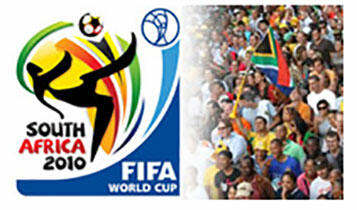
If you are about to travel to the 2010 FIFA World Cup in South Africa you may not have all the protection you need. Many UK travellers do not seek expert health advice before travelling to countries that pose health risks.
Dr Lisa Ford from LSTM’s Well Travelled Clinic said: “If you’re travelling to World Cup, play it safe and get expert travel health advice as soon as you can. It is not too late to seek advice.
“There is a risk of malaria in South Africa in the low altitude areas of Mpumalanga and Limpopo and northeast KwaZulu Natal. Taking malaria prevention tablets in combination with mosquito bite avoidance measures will give substantial protection for those travelling to these risk areas. Protection against mosquito bites will also minimise the risks from dengue fever. Those who have been to a malarious area and become unwell should seek urgent advice from a healthcare professional to determine whether malaria is the cause.
“All travellers should be up to date with the British childhood immunisations including tetanus and MMR. However, for most travellers the risk of infections such as cholera, hepatitis A and typhoid are low and vaccination is not required: simple precautions with food and water hygiene should be taken.
“In addition, travellers should be aware that rabies is present in South Africa and although most travellers will not need vaccination, they should avoid contact with wild and domestic animals and know what to do in event of a possible rabies exposure.
“Those flying directly to South Africa from the UK do not require a yellow fever certificate and are not at risk of yellow fever. However, a certificate is required for travellers coming from countries with a risk of yellow fever transmission including those whose flights transit yellow fever countries.
“Travellers should also avoid wading, swimming, or bathing in fresh water to avoid the risk of contracting the parasite infection schistosomiasis. Sexually Transmitted Infections and bloodborne viruses, such as HIV, Hepatitis B and Hepatitis C, are prevalent in sub-Saharan Africa. Travellers can reduce the risks by avoiding sexual contact or using condoms.
“More advice is available from your GP, specialist travel health clinic or the UK’s National Travel Health Network and Centre (NaTHNaC) website.”
-ends-
For further information, please contact:
Alan Hughes, Communications Manager
Office: +44 (0)151 705 3308
Mobile: +44 (0)7759 243969
Notes to Editors
National Travel Health Network and Centre NaTHNaC
The National Travel Health Network and Centre (NaTHNaC) promotes standards in travel medicine, providing travel health information for health professionals and the public.
Specific information for travel to the World Cup can be found at www.nathnac.org/pro/clinical_updates/2010worldcup_150210.htm
LSTM
The Liverpool School of Tropical Medicine (LSTM) has been engaged in the fight against infectious, debilitating and disabling diseases for more than a hundred years and continues that tradition today with a research portfolio in excess of £145 million and a teaching programme attracting students from over 70 countries.
Well Travelled Clinics
A company of The Liverpool School of Tropical Medicine providing a private pre-travel advice, holiday vaccination and malaria prophylaxis service to the North West’s travelling public and a number of UK-based corporate clients.